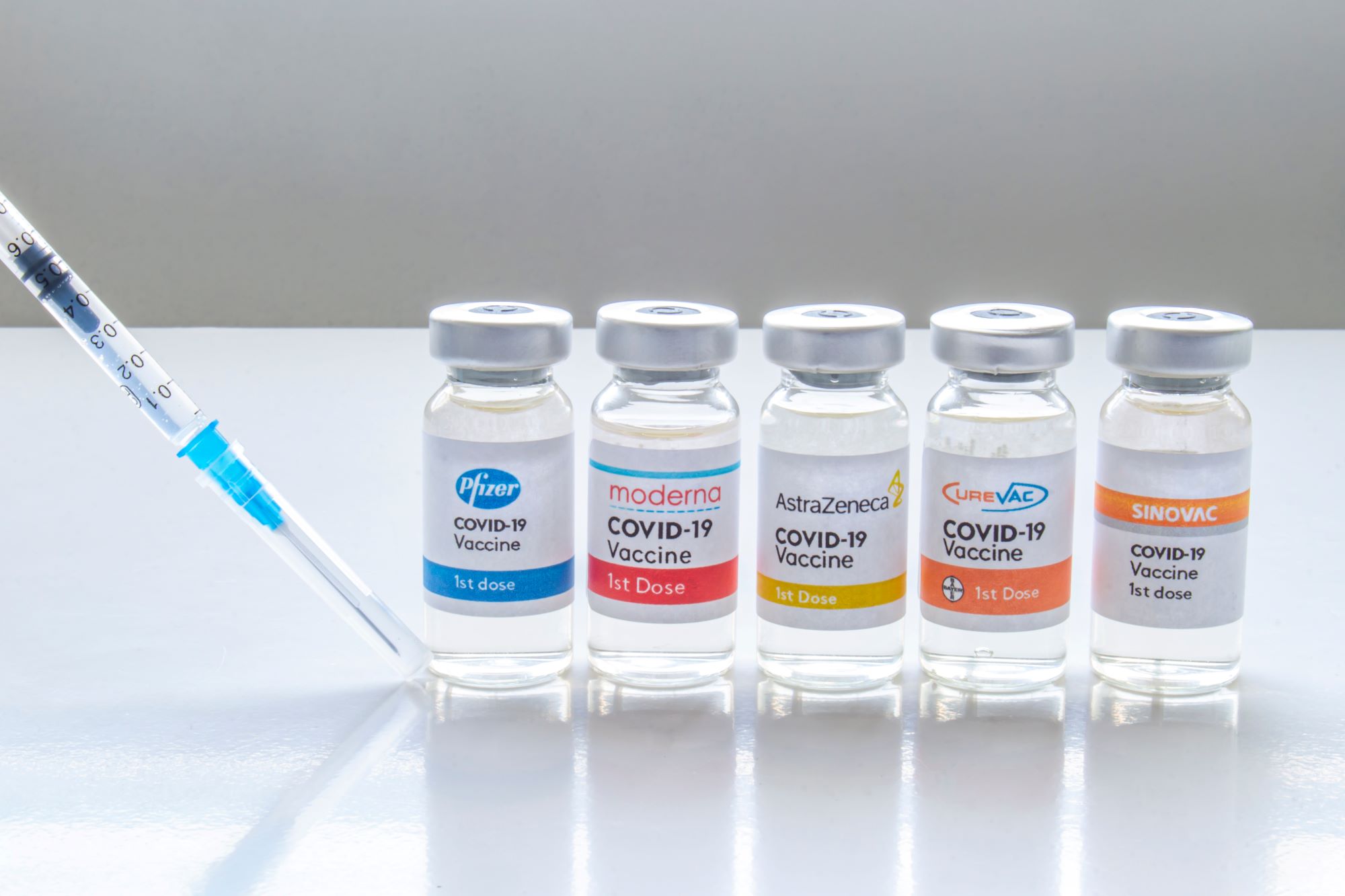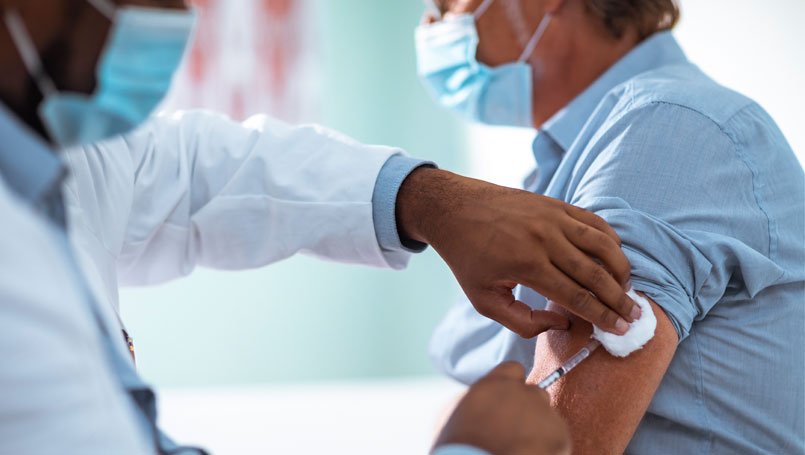Why hasn't the FDA fully approved the COVID-19 vaccines?

HealthLine – Written by Shawn Radcliffe on July 6, 2021
The FDA has shown no indication of when it will grant full approval.

- Two vaccine manufacturers have submitted applications for full approval of their COVID-19 vaccines, but the FDA hasn’t yet indicated when a decision will come.
- COVID-19 vaccines have been given emergency use authorization in the United States but have not yet been granted full approval.
- So far, the FDA has shown no indication of when it will grant full approval for these vaccines.
- Experts say full approval may help increase vaccination rates.
It’s been almost 7 months since the Food and Drug Administration (FDA) issued the first emergency authorization of a COVID-19 vaccine: Pfizer-BioNTech’s mRNA vaccine.
In the following months, two other COVID-19 vaccines, Moderna’s mRNA vaccine and Johnson & Johnson’s adenovirus vector vaccine, were given emergency use authorization.
Since that first authorization, more than 182.7 million U.S. people — 55 percent of the total population — have received at least one dose, according to the Centers for Disease Control and Prevention (CDC).
During the vaccination campaign, most people have received an mRNA vaccine either because it was more available or they preferred an mRNA vaccine.
In addition, a number of peer-reviewed studies have been published supporting the safety and effectiveness of the mRNA vaccines seen in the initial clinical trials.
Yet, so far the FDA has shown no indication of when it will grant full approval.
Lack of full approval, though, hasn’t limited the availability of the vaccines.
Right now, any person 12 years of age or older can get vaccinated against COVID-19 in the United States. The country also has plenty of doses to go around.
So, why does it matter if the mRNA vaccines have full FDA approval?
For one, full approval might help convince people in the “wait-and-see” group that the vaccines are safe and effective.
“Full approval may provide greater assurance that the vaccine safety and efficacy have been more fully studied, and may reduce some of the vaccine hesitancy that currently exists,” said Melissa Tice, PhD, assistant professor of clinical research and leadership at George Washington University.
It could also lead to more employers and schools requiring COVID-19 vaccination for their employees and students.
Both of these might help restart the country’s stalled vaccination program.
Which could prevent hospitals from being overwhelmed by COVID-19 patients, something that’s still happening in parts of the country — more than a year into the pandemic.
Dr. Eric J. Topol, a professor of molecular medicine at the Scripps Research Translational Institute, wrote in a recent New York Times opinion article that given the months of data now available, the FDA should move quickly to grant full approval of the mRNA vaccines.
“Few if any biologics (vaccines, antibodies, molecules) have had their safety and efficacy scrutinized to this degree,” he wrote.
“In other words, the mRNA vaccines have overwhelmingly been proved safe and effective by clinical trials, independent research and the experience of millions of people around the world who received them,” he added.
Timeline for full approval of COVID-19 vaccines
The FDA has not indicated when full approval of the mRNA vaccines might happen.
However, Pfizer and BioNTech as well as Moderna have already submitted applications for full approval of their vaccines — officially known as a Biologic License Application (BLA) — to the FDA on May 7, 2021, and June 1, 2021, respectively.
These submissions started the clock on the FDA’s regulatory review.
In the first 60 days, the agency checks the application to make sure it’s complete and decides which type of review will happen.
Tice said given the urgent need for the COVID-19 vaccines, the FDA will likely grant the applications “priority review.”
The agency’s goal for this type of review is to make a decision within 6 monthsTrusted Source of submission.
That means the FDA would decide on full approval of the Pfizer-BioNTech vaccine by January 2022 and February 2022 for the Moderna vaccine.
This is the maximum review time frame. A decision could come sooner thanks to the work done for the EUAs.
“The FDA has already reviewed the initial clinical trials data from both companies and the manufacturing aspects to grant the EUAs,” said Tice, so full approval of these vaccines might happen in less than 6 months.ADVERTISING
Full approval could boost vaccination rates
The FDA’s emergency approval is a less rigorous review process reserved for public health emergencies — of which a pandemic clearly qualifies.
There still was robust data showing the vaccines were safe since were based on clinical data involving tens of thousands of study participants, which is the same size trial as would be expected for a drug or vaccine to get full approval.
The EUAs for COVID-19 vaccines were granted based on an average of 2 months of safety follow-up data.
Tice said full review requires companies to submit longer-term data on the vaccine’s safety, along with additional data on how well the vaccine protects against infection and severe disease.
This will give a better picture of the benefits and risks of the vaccine.
According to a survey last month by the Kaiser Family Foundation (KFF), about a third of unvaccinated adults said they would be more likely to get vaccinated if one of the COVID-19 vaccines received full approval from the FDA.
About half of the unvaccinated “wait-and-see” group said the same. This group — which made up about 10 percent of adults surveyed — includes a large number of Black and Hispanic adults and younger adults.
Many incentives have been offered to encourage this on-the-fence group to get vaccinated, including million-dollar lotteries, free doughnuts, and free beer, with mixed success.
Employer COVID-19 vaccine mandates
The KFF survey also found that around 6 percent of adults say they will only get vaccinated if required, such as by an employer or school, or to travel.
For them, the nudge toward vaccination might have to come from mandates.
Even without full FDA approval of the COVID-19 vaccines, some employers have already started requiring vaccination for employees.
For example, Morgan Stanley is barring workers who are not fully vaccinated from most of its New York offices.
Also, health system Houston Methodist in Texas imposed a COVID-19 vaccine mandate for its employees. More than 150 workers resigned or were terminated as a result of this new policy, although that was a small fraction of the more than 20,000 workers who complied.
A group of employees challenged the mandate in court, but a judge dismissed their lawsuit.
This court decision, and federal law, supports the right of employers to require employees to be vaccinated.
However, some employers may be waiting for the FDA to grant full approval before setting up their own vaccine mandate.
This includes the U.S. military, which has encouraged, but not required, its active-duty members to get vaccinated.
Partial vaccination rates in the military range from 58 percent for the Marine Corps to 77 percent for the Navy.
However, the military has suggested that once the vaccine is fully approved, it may make vaccination a “medical readiness requirement” for service members.
Even if federal employment law allows for vaccine mandates, businesses in certain states may have a harder time requiring their employees to be vaccinated.
Many states have introduced or passed laws restricting the use of employer COVID-19 vaccine mandates or proof of vaccination.
COVID-19 vaccine mandates for schools
Hundreds of colleges and universities in the United States have already set up policies requiring students or employees to be vaccinated against COVID-19.
Full FDA approval may lead to additional schools setting requirements, with a broader scope of who has to be vaccinated.
More uncertain is whether K-12 schools will have COVID-19 vaccine mandates.
Each stateTrusted Source decides which immunizations are required for students to attend a public or private school, as well as whether religious or other exemptions are allowed.
However, the COVID-19 vaccines are currently only approved in the United States for people 12 years and older. Younger children may not have access to the vaccines until early fall.
Some experts think mandates won’t happen, if at all, until after the FDA fully approves the vaccines for children and teenagers.
Lawrence O. Gostin, JD, director of the O’Neill Institute for National and Global Health Law at Georgetown University, and colleagues wrote in JAMATrusted Source that “longer-term safety and strong support from healthcare professionals and the public” would be needed before school mandates are put in place.
In the meantime, they think incentives might work better at encouraging parents to vaccinate their children.
Twindemic alert: Why it’s doubly important to get the flu shot this season.

Monday, October 19, 2020
It’s always a good idea to get your flu shot. But as the 2020 flu season approaches, Matthew Sims, M.D., Ph.D., director of Infectious Disease Research at Beaumont Health, wants you to know, now more than ever, why it’s so important to arm yourself with the influenza vaccine.
“There is great concern that these two infections, both respiratory in nature, easily spread and requiring similar treatments, could break out at the same time and that individuals who test positive for one, may be more susceptible to contracting the other,” Dr. Sims said. “By itself, the flu can be extremely taxing to individuals and health care systems, but in combination with a second surge of COVID-19, the risk is that much greater. There’s also concern one infection will make individuals that much more vulnerable to the other, worsening outcomes.”
Experts are calling this perfect storm of events a “Twindemic.”
On the plus side, the flu vaccine may provide added defense against COVID-19.
“Although it is preliminary and not definitive, there is some data that suggests the flu vaccine provides some protection against COVID-19,” Dr. Sims said. “We aren’t exactly sure why it works. It could have something to do with priming the immune system to respond to COVID-19 and boosting immunity. It’s certainly not going to hurt.”
COPYRIGHTS
Copy & Paste the link above for Yandex translation to Norwegian.
WHO and WHAT is behind it all ? : >
The bottom line is for the people to regain their original, moral principles, which have intentionally been watered out over the past generations by our press, TV, and other media owned by the Illuminati/Bilderberger Group, corrupting our morals by making misbehavior acceptable to our society. Only in this way shall we conquer this oncoming wave of evil.
Commentary:
Administrator
HUMAN SYNTHESIS
All articles contained in Human-Synthesis are freely available and collected from the Internet. The interpretation of the contents is left to the readers and do not necessarily represent the views of the Administrator. Disclaimer: The contents of this article are of sole responsibility of the author(s). Human-Synthesis will not be responsible for any inaccurate or incorrect statement in this article. Human-Synthesis grants permission to cross-post original Human-Synthesis articles on community internet sites as long as the text & title are not modified